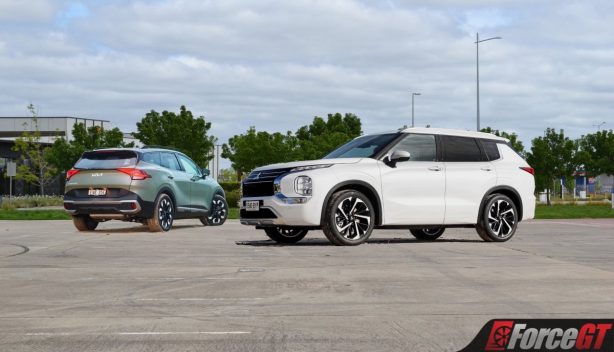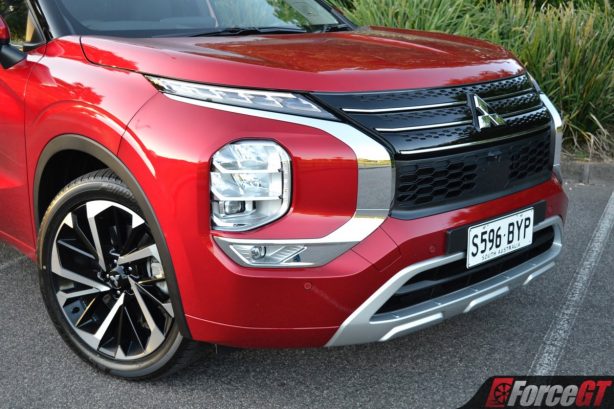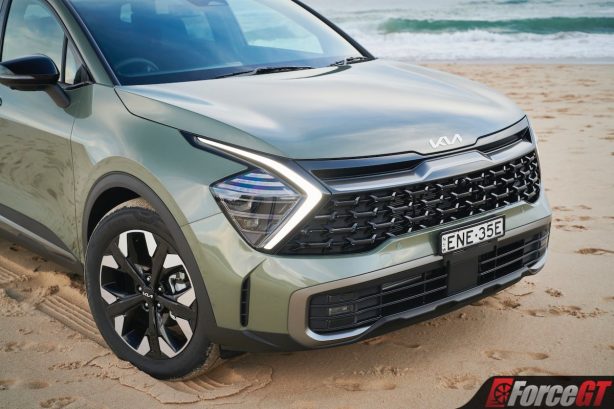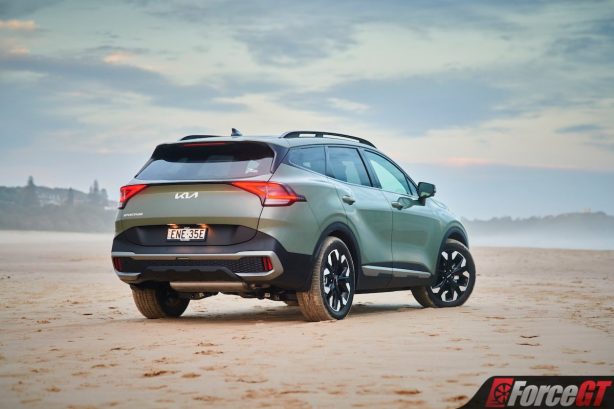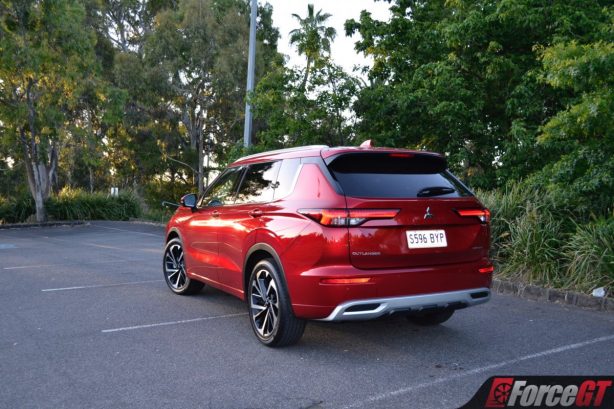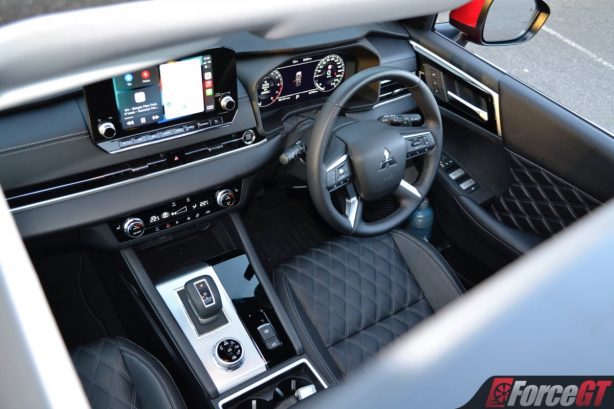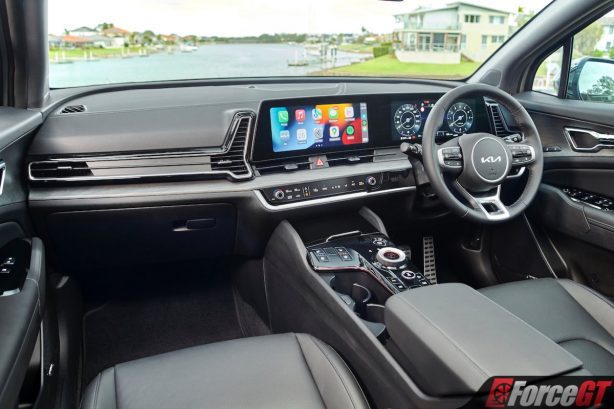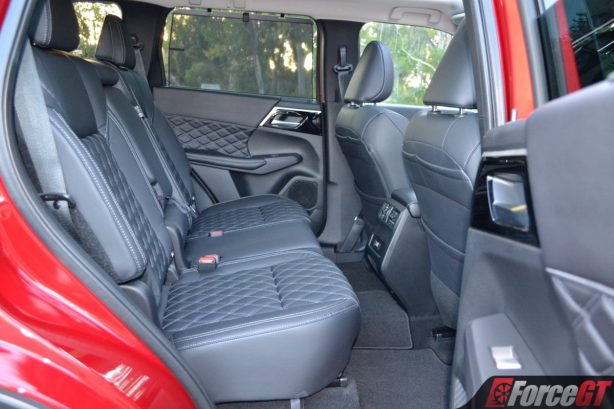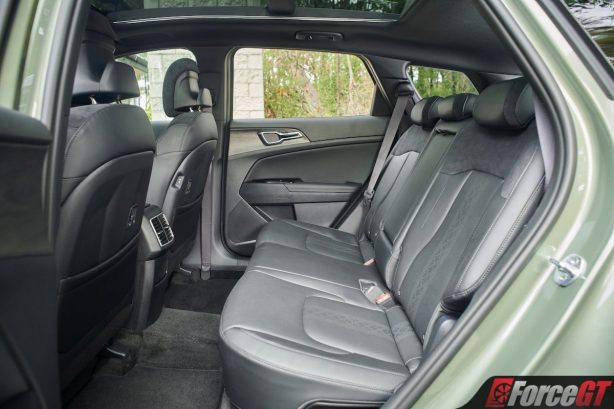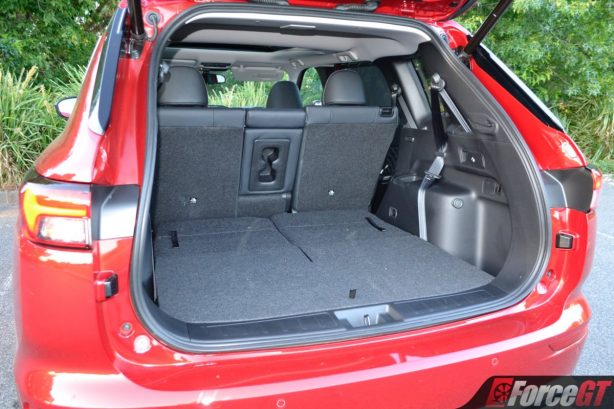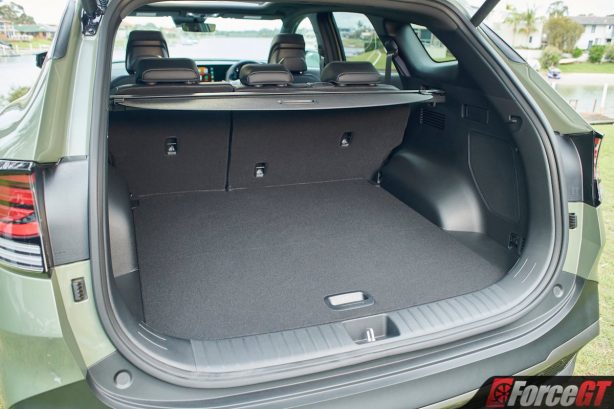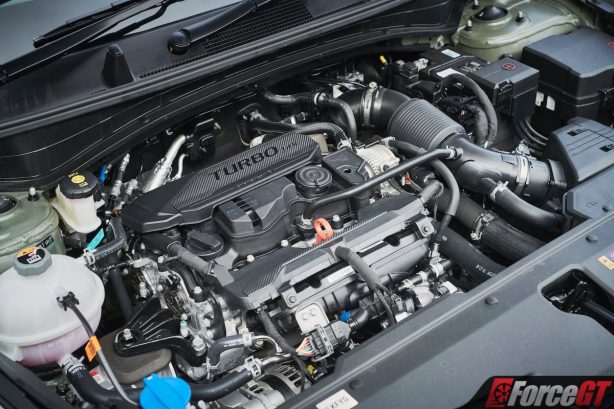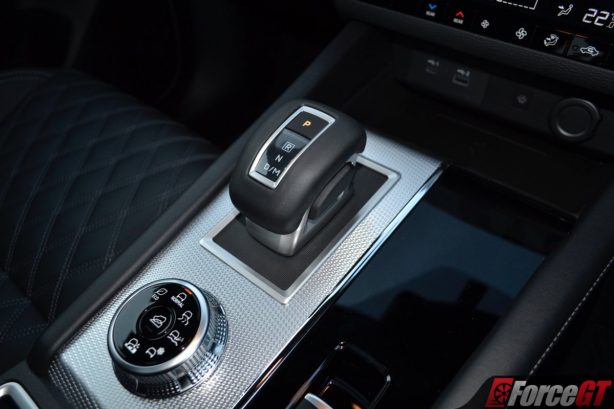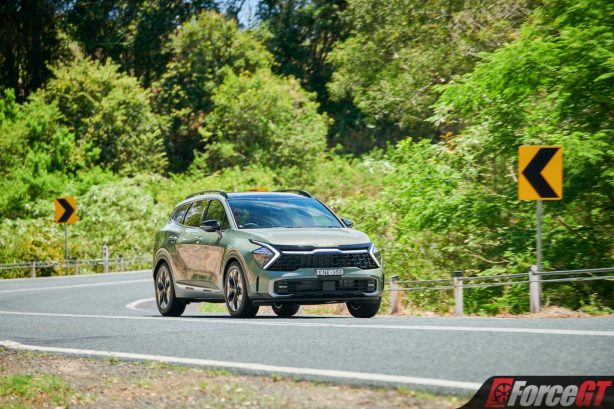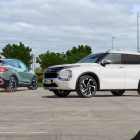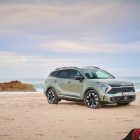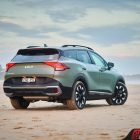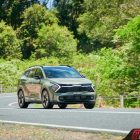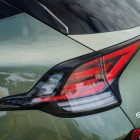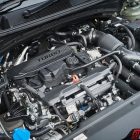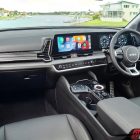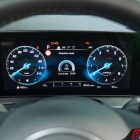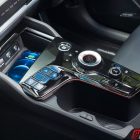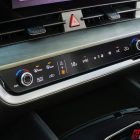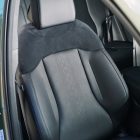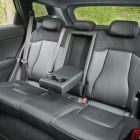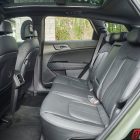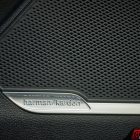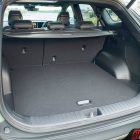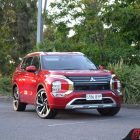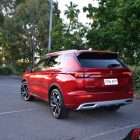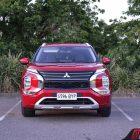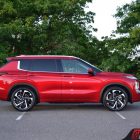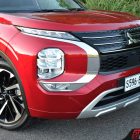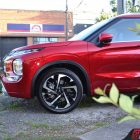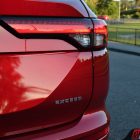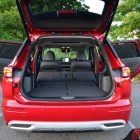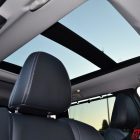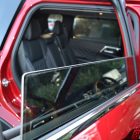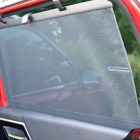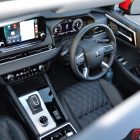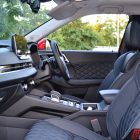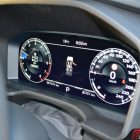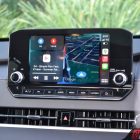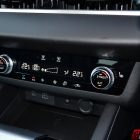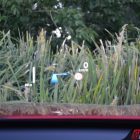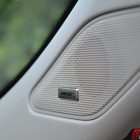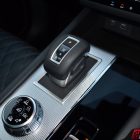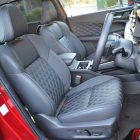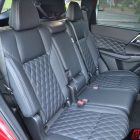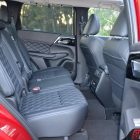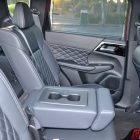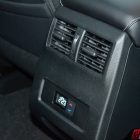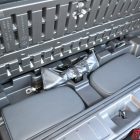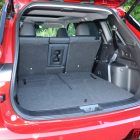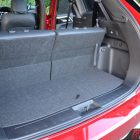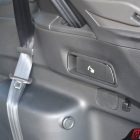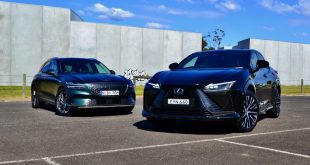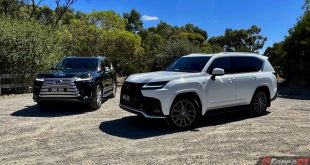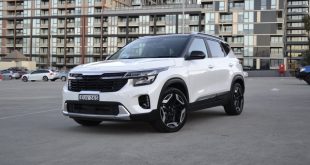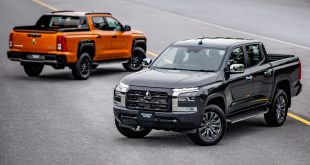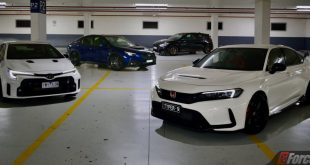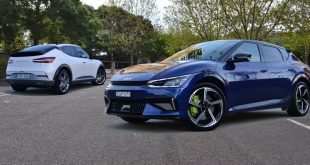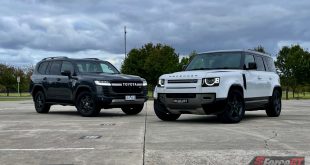Medium SUVs are hot tickets at the moment, easily eclipsing what used to be the default small cars on buyers shopping list thanks to their versatility, roomy cabin and increasingly generous specification.
One such model is the Mitsubishi Outlander. It is the most impressive model to come out of the Japanese brand in recent years. It won our comparison review against the formidable Hyundai Santa Fe, which is no mean feat as it is one of our favourites since its launch a few years ago.
But now there’s a new contender, again out of South Korea to try and wrestle the crown from the Outlander. They are the hottest medium SUVs in town and we’ve pitched the flagship variants of each model against each other for another battle.
The handsome 2022 Mitsubishi Outlander Exceed continues the diamond brand’s upward trend with a thoroughly modern design as well as roomy cabin. Seven seats are standard across the range except for the entry level ES.
From its neighbour to the west, the fifth-generation 2022 Kia Sportage GT-Line has also been thoroughly refreshed, arming itself with even sharper styling, an upsized cabin and plenty of technology to keep any millennials satisfied.
Strictly speaking however, the 2022 Mitsubishi Outlander Exceed isn’t the range-topper (the Exceed Tourer is), though you’ll be hard pressed to spot the difference from the outside or even from the inside.
We picked it as its $48,990 sticker is closer to the Kia Sportage GT-Line petrol’s $49,370 for a fairer comparison as opposed to the Exceed Tourer’s $51,490 price tag. All you miss out on are massage seats which isn’t a deal breaker, in our opinion.
On the outside
The fourth-generation 2022 Mitsubishi Outlander is the first all-new Outlander from the ground up in a decade. Featuring the latest interpretation of Mitsubishi’s ‘Dynamic Shield’ front grille, it’s bold, confident, and certainly looks more upscale than the outgoing model or the Sportage.
There are hi-tech LED lights all around except for the indicators, strangely. Side on, the stylish 20-inch alloys fill the black-cladded wheel arches beautifully, while the chrome strip at the bottom of the windows adds a touch of class.
Around the rear, the long and slender taillights give the SUV a wider look to further emphasise those bulging wheel arches.
The first thing you’ll notice about the new Kia Sportage is its size. It looks big. Perhaps it’s the massive front grille or 175mm longer overall length, but the Sportage is actually a tad shorter (-50mm) and lower (-85mm) compared to the Mitsi.
It, too, has all round LEDs lights including the indicators. And while looks can be subjective, the Outlander does look classier to us while the Sportage has a more intrepid and youthful design.
On the inside
Like the exterior, the Outlander’s interior is a major step up from its predecessor. The standout feature is of course the textured diamond-shaped leather stitching on the seats and door cards that not so long ago was only found in expensive Bentleys.
Its dashboard is clean, contemporary, and well laid out while a crisp fully digital instrument cluster also makes its debut. Displaying 12.3-inch, it’s more customisable than the Sportage’s similarly sized display, including a full map display in navigation mode.
Its 9.0-inch infotainment display is however, smaller than the Sportage GT-Line’s 12.3-inch but it supports wireless CarPlay (wired in the Sportage). It works fine if a little laggy and temperamental at times.
But there’s no denying the Sportage’s massive curved dual screen will win the hearts of any technophiles. It’s sharp and modern and we like the infotainment system’s presentation and useability more than the Outlander’s.
You can visit the Mitsubishi website here for the full range and specification.
This aside, the Outlander’s interior presentation is excellent, with high-quality materials and top-notch finish. While the materials in the Sportage is good, its piano black centre console and wide touchscreen is a fingerprint magnet which could be annoying.
Both cars get leather appointed seats (part suede in the Sportage) with power adjustment and memory function for the front seats, along with heating and cooling. The seats are comfortable in both front and second rows, with good adjustability between steering wheel and seats.
Ergonomics are good in both cars, though the Outlander wins with easy-to-use climate control knobs against the Sportage’s touch interface.
Interestingly, one of the Outlander’s unique selling points – its 7-seat layout – is also the reason behind its tighter second row compared to the Sportage’s commodious offering. It’s still comfortable back there with reclining backrests but taller passengers might find legroom a little lacking. Meanwhile, its third-row is best left for kids or smaller stature adults.
When used as a five-seater, the Outlander’s 478L boot is also down on the Sportage’s 543L capacity. It expands to 1,461L with all rows folded flat against the Kia’s voluminous 1,829L.
Visit the Kia website here for the full specification.
Safety
A full suite of active safety technology is available on both models. These include:
- Autonomous emergency braking
- Lane follow assist
- Blind-spot monitoring
- Rear cross-traffic alert
- Adaptive cruise control
- 360-degree camera
- Centre airbag between the front seats
Like other range-topping Kia’s and Hyundai’s, the Sportage also comes with a cool blind-spot camera feed on the 12.3-inch instrument cluster when you activate the indicator.
Under the skin
Powering the Kia Sportage GT-Line petrol is the familiar 1.6-litre turbocharged four-cylinder engine producing 132kW at 5,500rpm and 265Nm at 1,500-4,5000rpm (a 2.0-litre turbo-diesel is also available). It is found under various model in the Hyundai/Kia empire including the Cerato GT-Line and i30 N-Line. Mated with a seven-speed dual-clutch automatic transmission, it channels drive to all four wheels.
It’s a responsive little unit that provides adequate oomph to the 1,643kg Sportage, while the dual-clutch transmission dishes up its ratios appropriately and without much noticeable hesitation at creeping speeds.
It’s relatively muted under most conditions, too, with not much engine noise intrusion into the cabin.
Meanwhile, the Outlander range is motivated exclusively by a 2.5-litre four-cylinder normally aspirated petrol engine developing 135kW at 6,000rpm and 245Nm at 3,600rpm. It drives through an eight-stepped CVT automatic along with Mitsubishi’s lauded and improved Super-All Wheel Control (S-AWC) all-wheel drive system.
And while the all-new 2.5-litre petrol engine may be lacking a turbo, its power output is slightly superior compared to the Sportage although torque suffers a 20Nm deficit. In the real world, this means slightly weaker take-off and mid-range but there’s still enough punch to manage general overtaking duties.
This is accomplished thanks to the CVT which keeps the engine operating at its optimum power band while maximising fuel efficiency. Unlike older generation CVTs, the Outlander’s unit hardly flares the revs and behaves almost like a conventional torque converter transmission. The ratios are locked and stepped under hard acceleration to give a more natural feel.
Both cars feature on-demand all-wheel drive deployed predominantly through the front wheels.
On the road
On the handling front, there’s not much that separates the Outlander from the Sportage. We’ll happily take both on a long drive though the Sportage is the quieter and more refined of the two in terms of engine noise.
Ride quality is good on both SUVs, too, but the Outlander impresses by ironing out most speed humps and road imperfection nicely even on massive 20-inch wheels.
On more challenging country B-roads, both SUVs exhibit good body control and tight handling though this time, it’s the Sportage that edges slightly ahead thanks to its tighter suspension and sharper steering.
However, the Sportage’s annoyingly large 12.2m turning circle won’t win over many fans, making life difficult when it comes to three-point turns.
In the long run
While the Kia Sportage has one of the longest standard warranties in the industry at 7 years, the Outlander trumps that with a 10 year warranty if all servicing are done at a Mitsubishi dealership. It is worth noting however, that Kia has no cap on the kilometres while Mitsubishi has a 100,000km cap.
Both cars require a visit to the dealership at 15,000km or 12 months, whichever comes first.
In terms of servicing costs, both are offered with capped price servicing but the Mitsubishi costs just under $200 per year for the first five years versus around $500 for the Kia.
On test average fuel consumption for both models are almost a match, too, with the Sportage returning 8.6L/100km and the Outlander 8.5L/100km.
Verdict
Deciding between the Kia Sportage GT-Line and the Mitsubishi Outlander Exceed isn’t as straight forward as we thought but you wouldn’t go wrong with either SUV
In terms of interior space and refinement, both cars offer a premium cabin though the Kia is more hi-tech and polished, as exemplified by the massive dual-screen set up. The Outlander does counter with the flexibility of seven seats, although the third row is not adult-friendly. In five-seat mode, the Outlander’s is comparatively tight while its boot is around 10 per cent smaller than the Sportage’s.
When it comes to how they drive, they are a closer match. The Sportage’s stronger low-RPM torque delivery does provide a more energetic feel but its massive turning circle is a drawback in the inner city. Both cars handle suburban roads well but the Sportage’s handling on country roads is slightly better.
In the end, a narrow victory goes to the Sportage thanks to its combination of cabin presentation, refinement and handling but the Outlander is far from being discomfited. In fact, the Outlander is a huge improvement over its predecessor and definitely deserves a place on your shopping list
| 2022 Kia Sportage GT-Line Petrol AWD | 2022 Mitsubishi Outlander Exceed AWD | |
| Design and Comfort | 9.0 | 8.5 |
| Performance and Handling | 9.0 | 8.5 |
| Quality | 8.5 | 8.5 |
| Economy | 8.0 | 8.0 |
| Equipment and Features | 8.5 | 8.5 |
| Overall | 43/50 | 42/50 |
Pricing and Specification
| 2022 Kia Sportage GT-Line Petrol AWD | 2022 Mitsubishi Outlander Exceed AWD | |
| Price (excluding on-road costs): | From $49,370 | From $48,490 |
| Warranty: | 7 years, unlimited km | 10 years, 100,000km |
| Warranty Customer Assistance: | 1 year roadside | 1 year roadside |
| Service Intervals: | 12 months, 15,000km | 12 months, 15,000km |
| Country of Origin: | South Korea | Japan |
| Engine: | 1.6-litre turbocharged four-cylinder direct-injected petrol: 132kW @ 5,500rpm, 265Nm @ 1,500-4,500rpm | 2.5-litre four-cylinder direct injection petrol: 135kW @ 6000rpm, 245Nm @ 3600rpm |
| Transmission: | 7-speed automatic dual clutch | CVT |
| Drivetrain: | All-wheel drive | All-wheel drive |
| Power-to-Weight Ratio (W/kg): | 80.3 | 78.3 |
| Combined Fuel Consumption (L/100km): | Claimed: 7.2/Tested: 8.6 | Claimed: 8.1/Tested: 8.5 |
| Fuel Capacity (L): | 54 | 55 |
| Body: | 5-door SUV, 7-seats | 5-door SUV, 7-seats |
| Safety: | ANCAP not rated, 7 airbags, ABS, BA, EBD, ESC, Downhill Brake Control, Blind-Spot Collision-Avoidance Assist, Driver Attention Warning, Forward/Reverse Collision-Avoidance Assist, Lane Keeping Assist, Rear Cross-Traffic Collision-Avoidance Assist, Emergency Stop Signal, Tyre Pressure Monitoring System, Rear Occupant Alert, Safe Exit Assist, Surround View Monitor, ISOFIX | 5-star ANCAP, 7 airbags, ABS, BA, EBD, ESC, Downhill Brake Control, Blind-Spot Collision-Avoidance Assist, Driver Attention Warning, Forward/Reverse Collision-Avoidance Assist, Lane Keeping Assist, Rear Cross-Traffic Collision-Avoidance Assist, Emergency Stop Signal, Tyre Pressure Monitoring System, Rear Occupant Alert, Trailer Stability Assist, Surround View Monitor, ISOFIX |
| Dimensions (L/W/H/W-B): | 4,660/1,865/1,660/2,755 | 4,710/1,862/1,745/2,706 |
| Turning Circle Between Kerbs: | 12.2 | 10.6 |
| Kerb Weight (kg): | 1,676 | 1,760 |
| Entertainment: | 12.3-inch colour touchscreen, satellite navigation, AM/FM/DAB+, Bluetooth, USB, AUX, Apple CarPlay/Android Auto 8-speaker Harmon Kardon premium audio system | 9-inch colour touchscreen, satellite navigation, AM/FM/DAB+, Bluetooth, USB, AUX, Wireless Apple CarPlay/Android Auto 10-speaker Bose premium audio system |
 ForceGT.com Car News, Car Reviews, Video Reviews, Tuning and much more.
ForceGT.com Car News, Car Reviews, Video Reviews, Tuning and much more. 